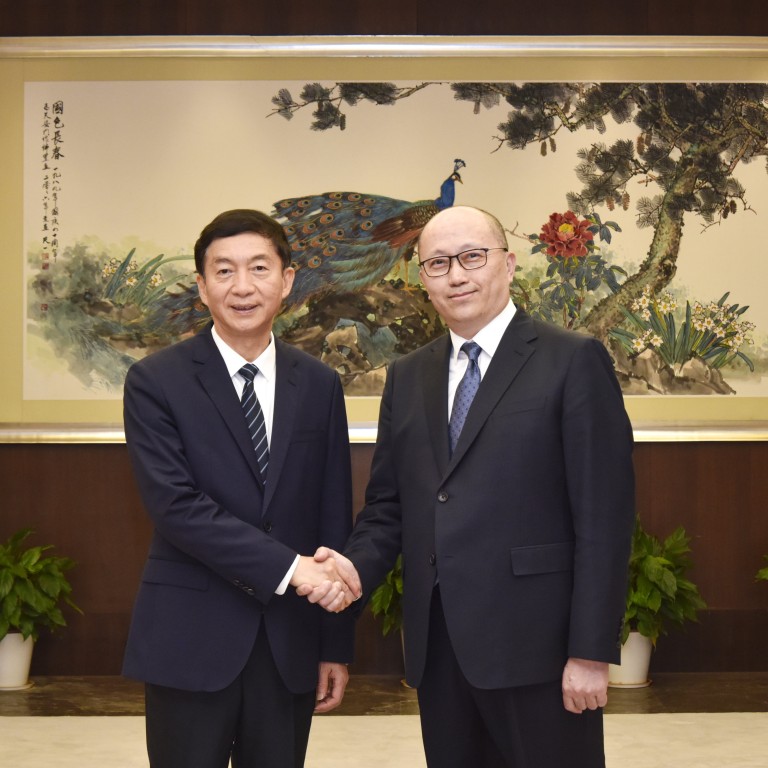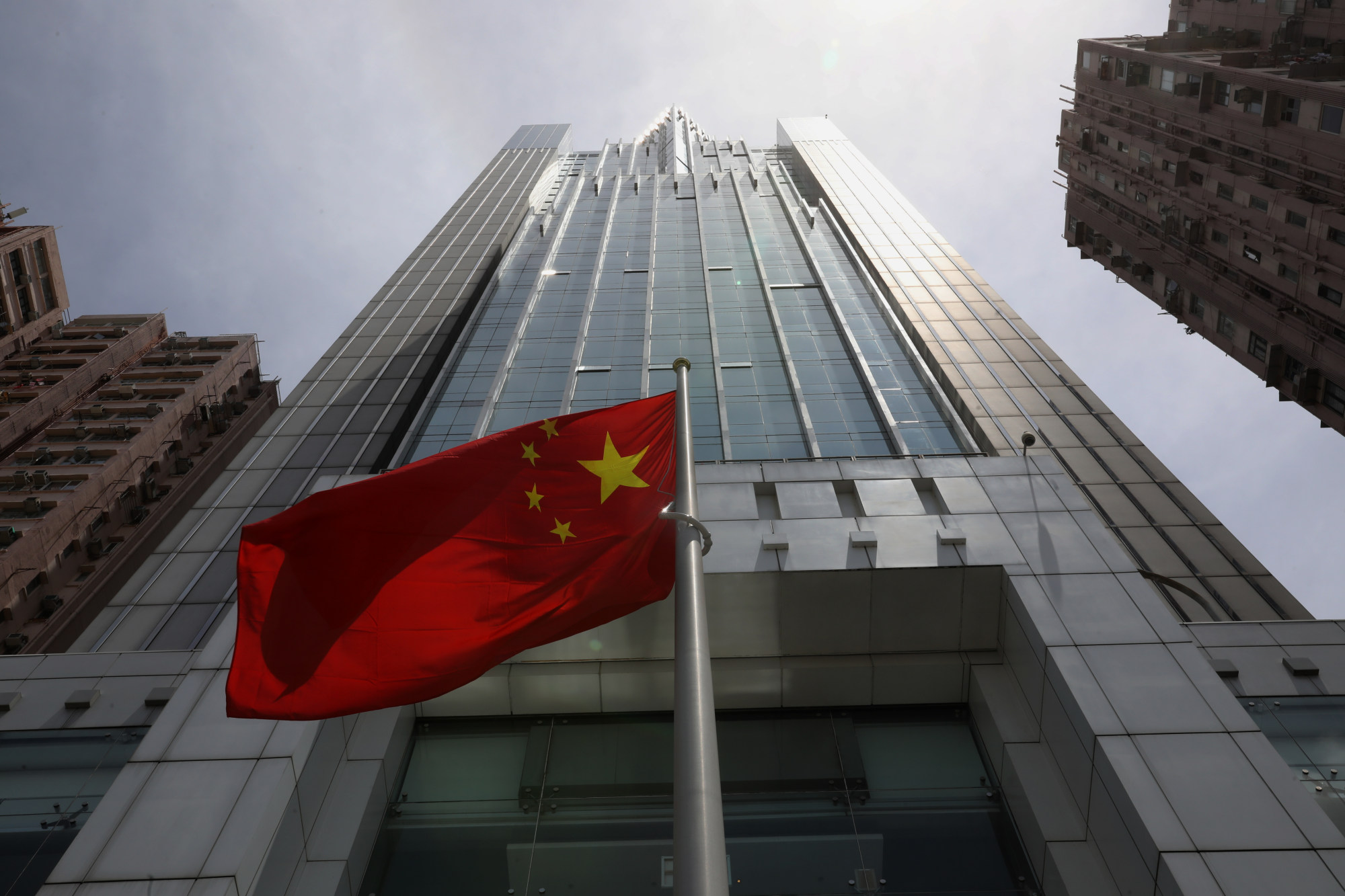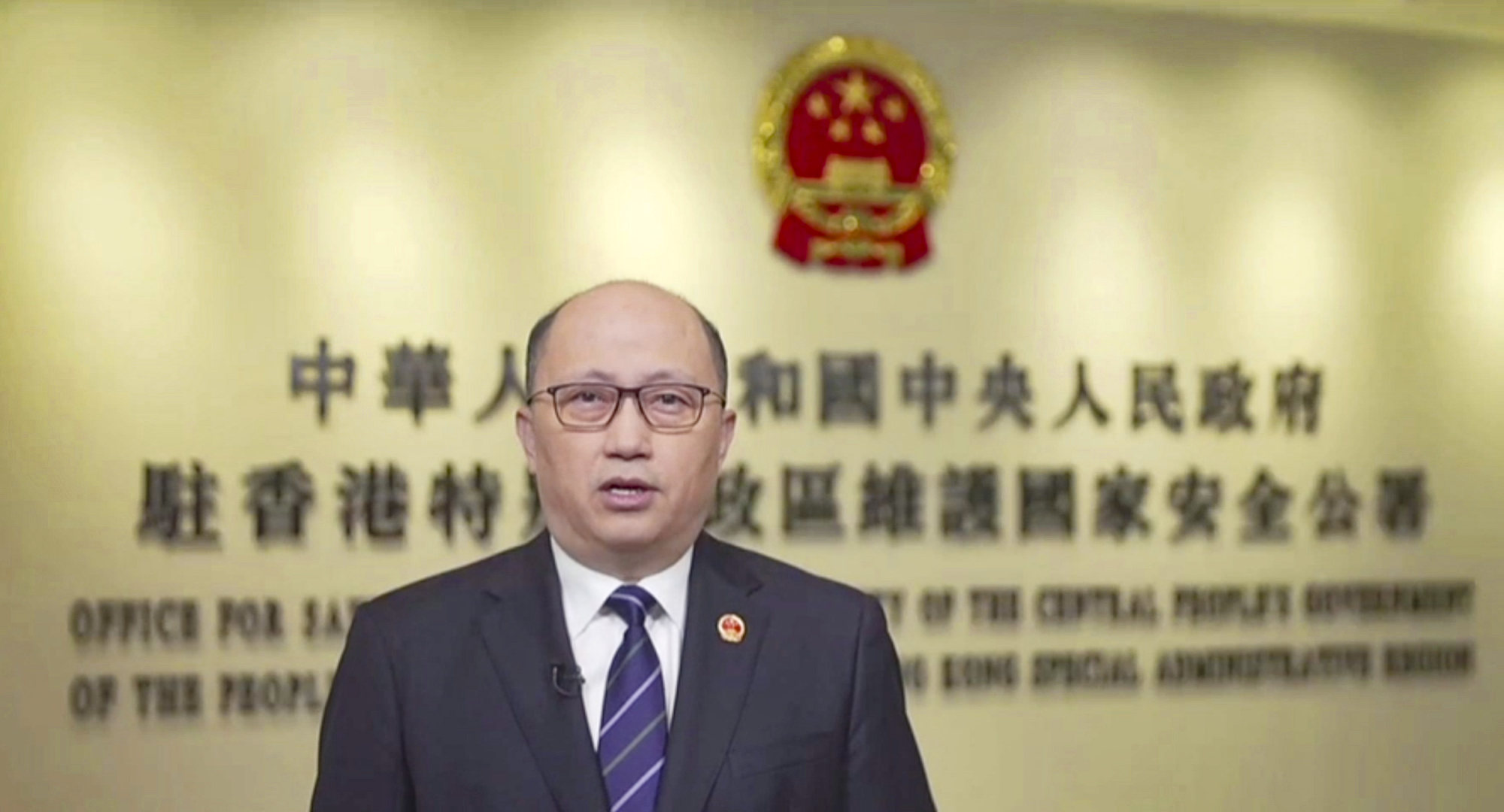
‘Dare to fight and win’: Beijing’s national security chief in Hong Kong takes reins at liaison office, vows to help steer city toward prosperity
- Zheng Yanxiong, 59, former director of the Office for Safeguarding National Security, has replaced Luo Huining
- Change in leadership suggests liaison office will take firm stance toward foreign powers and national security matters, analysts say
Beijing’s national security chief in Hong Kong has been promoted to lead the liaison office, becoming the top envoy in the city and signalling the importance of sovereignty even as he pledged to shift the focus from governance to ensuring prosperity by seizing new national development opportunities.
The decision to appoint Zheng Yanxiong, 59, former director of the Office for Safeguarding National Security, suggested Hong Kong had transitioned from chaos to governance and was now moving to seek advancement for the city, political analysts said.
The State Council on Saturday said Zheng would take up the new role, with incumbent liaison office head Luo Huining, 68, “removed from the post” with immediate effect as he was retiring.
Hongkongers should seize country’s ‘historic opportunities’: Luo Huining
The tough-talking official in July 2020 was appointed head of the powerful new agency established in Hong Kong to oversee the implementation of the sweeping national security law that was enacted a month earlier.
As Luo handed the reins over to Zheng in the morning, he described his successor as a man of firm political stance, strong fighting spirit and courage, who was a pioneer in maintaining national security in Hong Kong.
Bidding farewell to Luo, Zheng also thanked Chinese President Xi Jinping for his trust and vowed to perform his new duties faithfully as the city moved from governance to greater prosperity following the restoration of order under Luo in response to the 2019 social unrest.
The newly appointed liaison office chief also laid out six personal goals, pledging to uphold loyalty and virtue, learn modestly, be strict in examining himself, dare to fight and win, as well as lead his team well.

“I will dare to fight and win. In face of new opportunities and challenges as the city turned from governance to prosperity, I will … persist in taking advantage of the situation … carry forward the fighting spirit, be alert to risks and hidden dangers, and support Hong Kong in making new and greater contributions in the historical process of the great rejuvenation of the Chinese nation,” he said.
“[I will also] persist in grasping and dealing with problems politically, assess and coordinate work in Hong Kong under the overall national development plans, … navigating the political landscape and preventing political risks.”
He added that Hong Kong’s work was a “big national issue” of significant importance.
Zheng also stressed Hong Kong’s shift toward prosperity from governance, rather than the previous phase of going “from chaos back to governance”. Under this transition, his mission would include, alongside national security, grasping opportunities and tackling challenges.

Chief Executive John Lee Ka-chiu welcomed the appointment and said he believed the liaison office under Zheng would continue to support local authorities in implementing the principles of “one country, two systems” and “Hong Kong people administering Hong Kong” with a high degree of autonomy and its constitutional order as per the laws of mainland China and Hong Kong.
“As Hong Kong embarks on the critical period of breaking new ground and leaping forward, I am sure that Zheng will continue to cooperate with the HKSAR government in supporting the promotion of Hong Kong’s integration into national development and making greater contributions to the rejuvenation of the Chinese nation,” he said.
Political analyst Lau Siu-kai, of the semi-official think tank, the Chinese Association of Hong Kong and Macau Studies, said the change in leadership indicated the office would take a firm stance toward foreign powers and national security matters during the city’s shift to prosperity.
“It is the policy of the central government to resolutely fight against external forces meddling in Hong Kong affairs and endangering Hong Kong’s stability and national security,” he said.
“The director must show the spirit of fighting against hostile forces, as well as courage and wisdom.”
Liaison office director kicks off drive to ‘listen directly’ to Hong Kong people
Luo, meanwhile, had already passed the typical retirement age before he took the helm at the liaison office in 2020 and was only “entrusted with a mission at a critical and difficult moment”, Lau explained.
The role of Zheng’s predecessor also focused on promoting Hong Kong’s economic development, improving people’s livelihoods, and integrating the city into the country’s overall development, as well as national education, he added.
Political commentator Johnny Lau Yui-siu said the appointment showed Beijing’s highest priority in terms of Hong Kong was national security.
“Without national security, the city’s ‘moving from stability to prosperity’ could not be possible. The appointment of Zheng demonstrates that the central government will deal with national security issues first when it comes to matters related to Hong Kong,” he said.
Aside from Zheng’s experience in Hong Kong, the analyst also pointed out the mainland official had worked in Guangdong province and played a role in cracking down on the 2011 protests in Wukan village.
Hong Kong urged to amend city laws to align them with national security legislation
The liaison office, located in Sai Ying Pun, was established in 2000 to replace the New China News Agency and act as an official communication bridge between Beijing and Hong Kong.
Before the social unrest in 2019, the office maintained a low office to avoid the appearance of pressuring local officials or intervening in Hong Kong’s affairs.
The office took on a more proactive role following the anti-government demonstrations and Beijing’s promulgation of the national security law in 2020, with senior officials attending functions, meeting the pro-establishment camp, as well as commenting on local politics and hitting back at “attacks” from foreign countries.
Additional reporting by Fiona Sun



